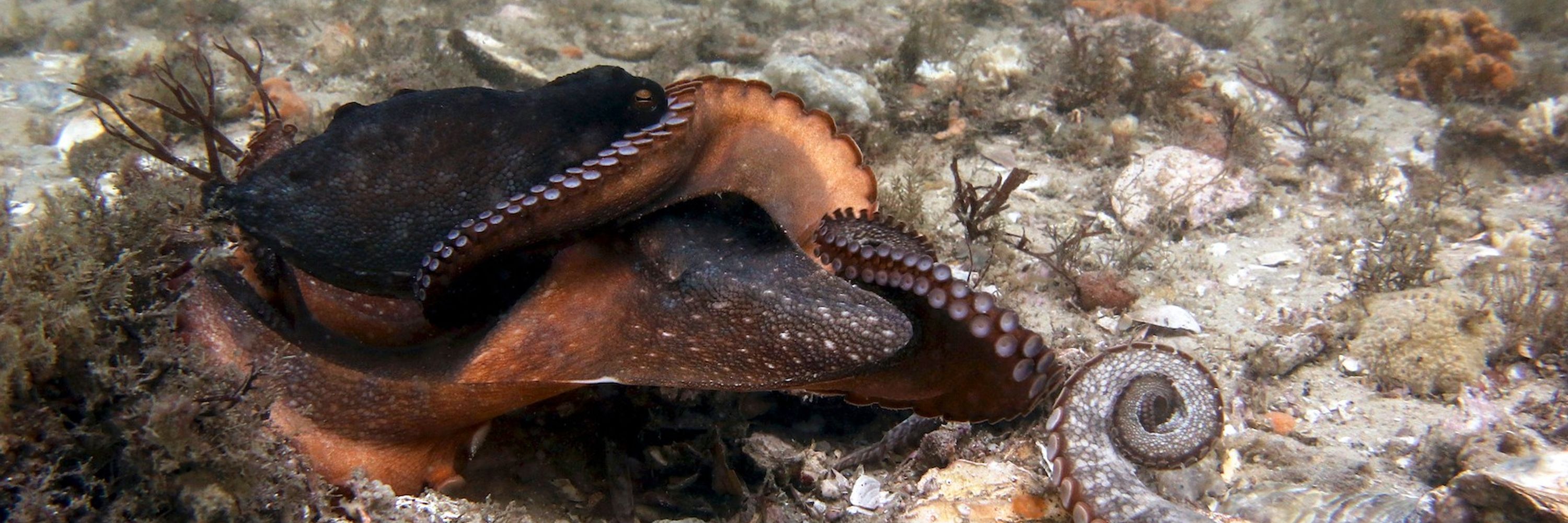
Peter Godfrey-Smith is an Australian philosopher of science and writer, who is currently Professor of History and Philosophy of Science at the University of Sydney. He works primarily in philosophy of biology and philosophy of mind, and also has interests in general philosophy of science, pragmatism, and some parts of metaphysics and epistemology. Godfrey-Smith was elected to the American Philosophical Society in 2022. .. more

www.lrb.co.uk/podcasts-and...

Tomorrow evening @meehancrist.bsky.social and I record episode 3 of "Nature in Crisis," a new podcast series with the @lrb.co.uk.
Episode 1 looked at Rachel Carson's "Silent Spring," and is available now (link in reply).


I am a 'natural light ideologue' - see this blog post.
metazoan.net/126-spun-of-...
(Below is also an image from another blog post – how an adjustment for 12 meters or so looks at the surface.)

I recommend against make the bet - your dollar may well be lost. One can photograph reds and oranges underwater without added light; just have to tell the camera to scour its input for the tiny amounts of red coming in, and ramp them up in the mix. 1/

Once a month, with myself & Meehan Crist.
Episode 1, out now, is about Rachel Carson's "Silent Spring."
www.lrb.co.uk/podcasts-and...
Here's an excerpt of the video, just with the 'throw.' 3/

I discussed the case way back, on my blog.
metazoan.net/10-a-new-oct...
(This case is not used in our 2022 paper on the topic.) 2/

The other octo is definitely hit, but the aim was not great.
I put onto YT a better version of the video. 1/
www.youtube.com/watch?v=r87a...

metazoan.net/127-affection/
Thanks to Macario Mina for a nice review of TR2, which he calls "a guide for navigating stormy seas." 3/3

I don't read Spanish, and used a translate site.
Mina suggests that both Polanyi and Whitehead might have been included..
www.religiondigital.org/libros/segur... 1/


Bobcat not lioness, but the image brings to mind the Iranian protestors right now.
Reposted by Lisa W. Fazio, Jan W. Mueller, Matthew Bunn , and 39 more Lisa W. Fazio, Jan W. Mueller, Matthew Bunn, Dorothy Bishop, Brendan Nyhan, Tom Clark, Robert W. Wallace, Steven French, David Peetz, Rosemary A. Joyce, Jonathan M. Gilligan, American Library Association, Martin Paul Eve, Erica Chenoweth, Jacob Montgomery, Mickey Gjerris, Cathy N. Davidson, Ryan Enos, Elwys De Stefani, Robert C. Richards, Michelle L. Mazurek, Andrew Jacobs, Jacob T. Levy, Margot C. Finn, Scott A. Imberman, Christine Kooi, Michael H. Whitworth, Samantha Brennan, Ben Rosamond, Dana R. Fisher, Nigel Warburton, David Bartram, Mary Margaret McCabe, Alessandro Rigolon, Jeremy J. Schmidt, Hisham Zerriffi, Peter Godfrey‐Smith, Daxton R. Stewart, Michael Evans, Virginia Sapiro, Richard Moorhead, David Darmofal


I'm applying to speech a framework developed with Ben Kerr for understanding tolerance in general, especially in relation to "toleration of the intolerant."
onlinelibrary.wiley.com/doi/abs/10.1...
Preprint: petergodfreysmith.com/wp-content/u... 4/


I gave talks in 2025 about tolerance & free speech. Wrote up the main one:
petergodfreysmith.com/wp-content/u...

Obsessing also about some photographic ethics – suddenly adding light to the world of these tiny creatures. Is it aversive? How could we tell? A scrap of data is included..
metazoan.net/126-spun-of-...

A gastropodic marvel. (Fly Point, Australia)





